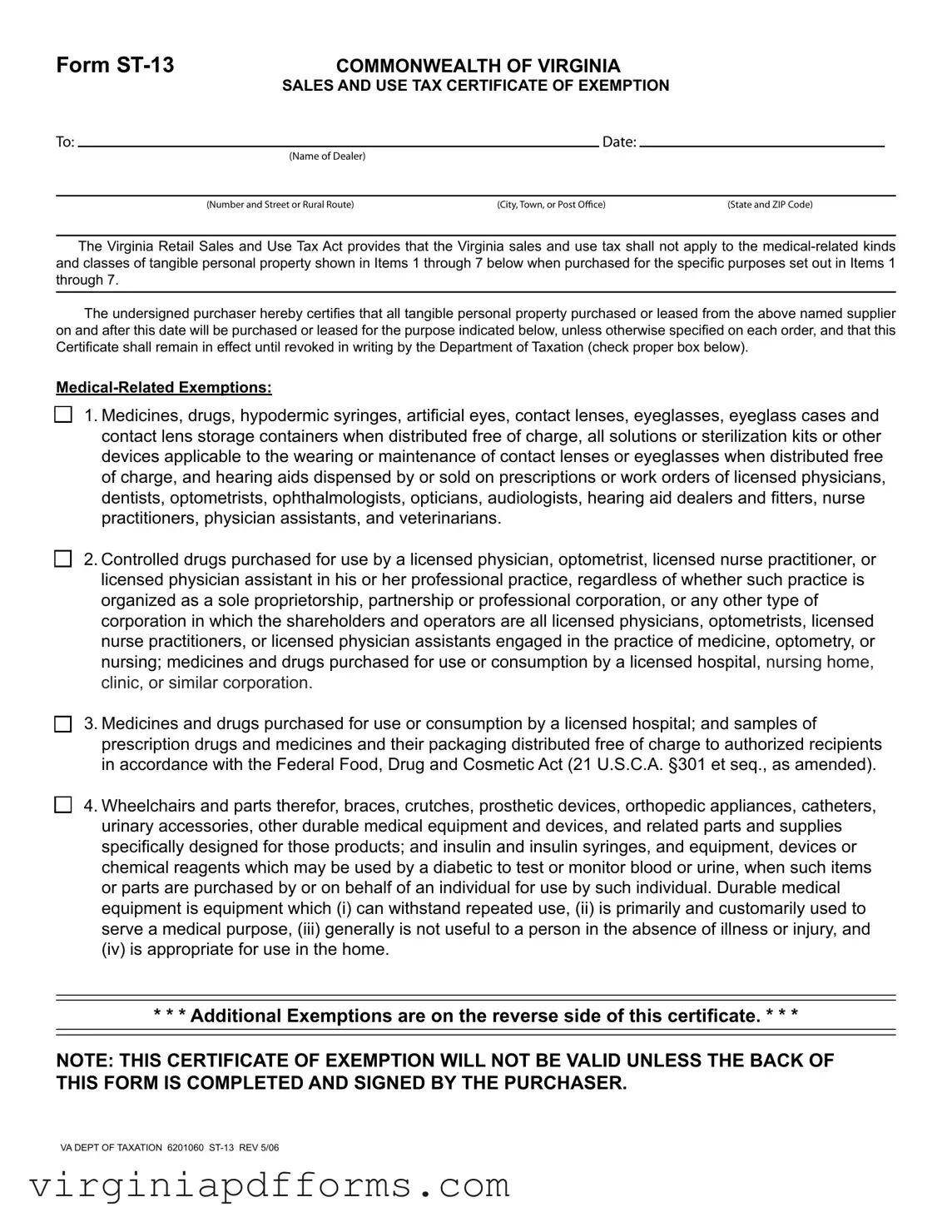Fill in a Valid Virginia St 13 Template
The Virginia St 13 form is a certificate of exemption from sales and use tax for specific medical-related purchases in Virginia. Under the Virginia Retail Sales and Use Tax Act, certain tangible personal property can be acquired tax-free when intended for medical purposes. This form allows purchasers, such as hospitals and licensed medical professionals, to certify their eligibility for these exemptions.
Access My Document Now

Fill in a Valid Virginia St 13 Template
Access My Document Now

Access My Document Now
or
Free Virginia St 13 File
Need this form wrapped up fast?
Finish Virginia St 13 online — edit, save, download without effort.